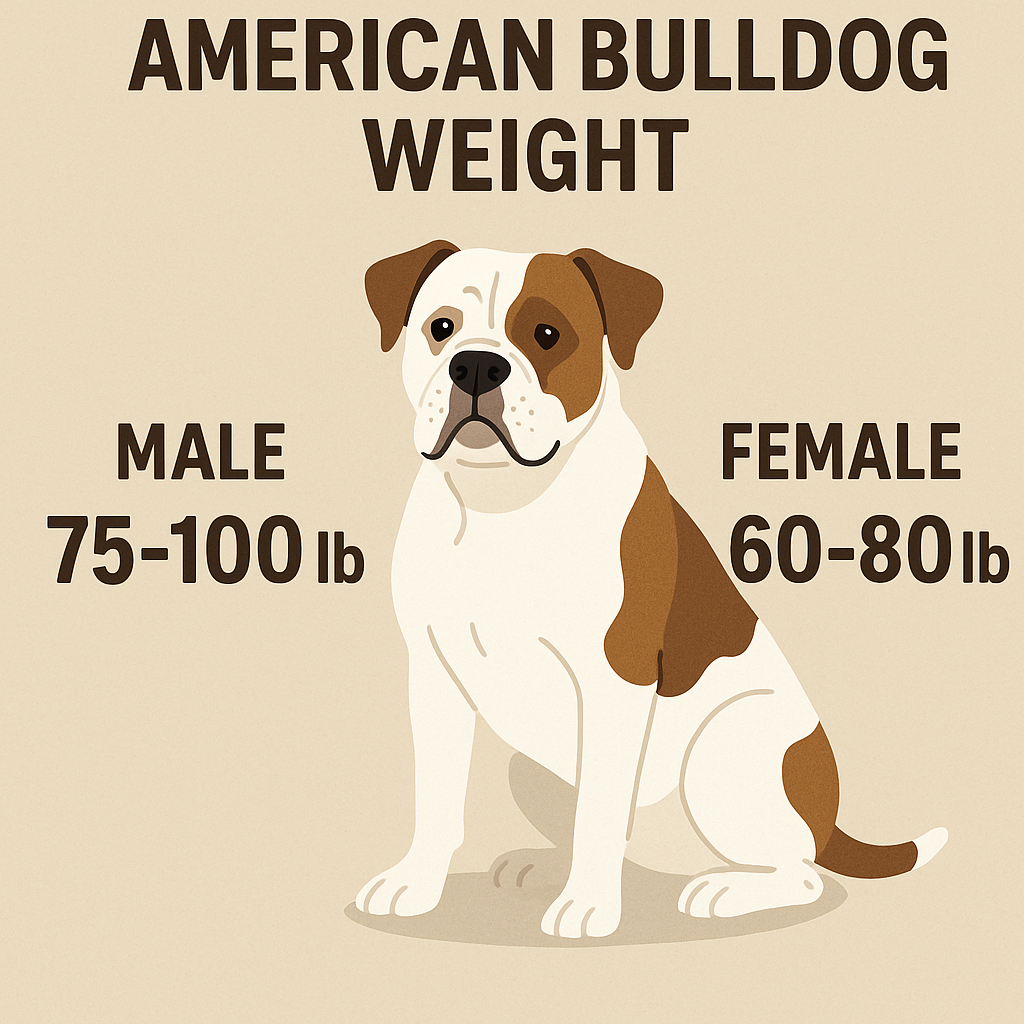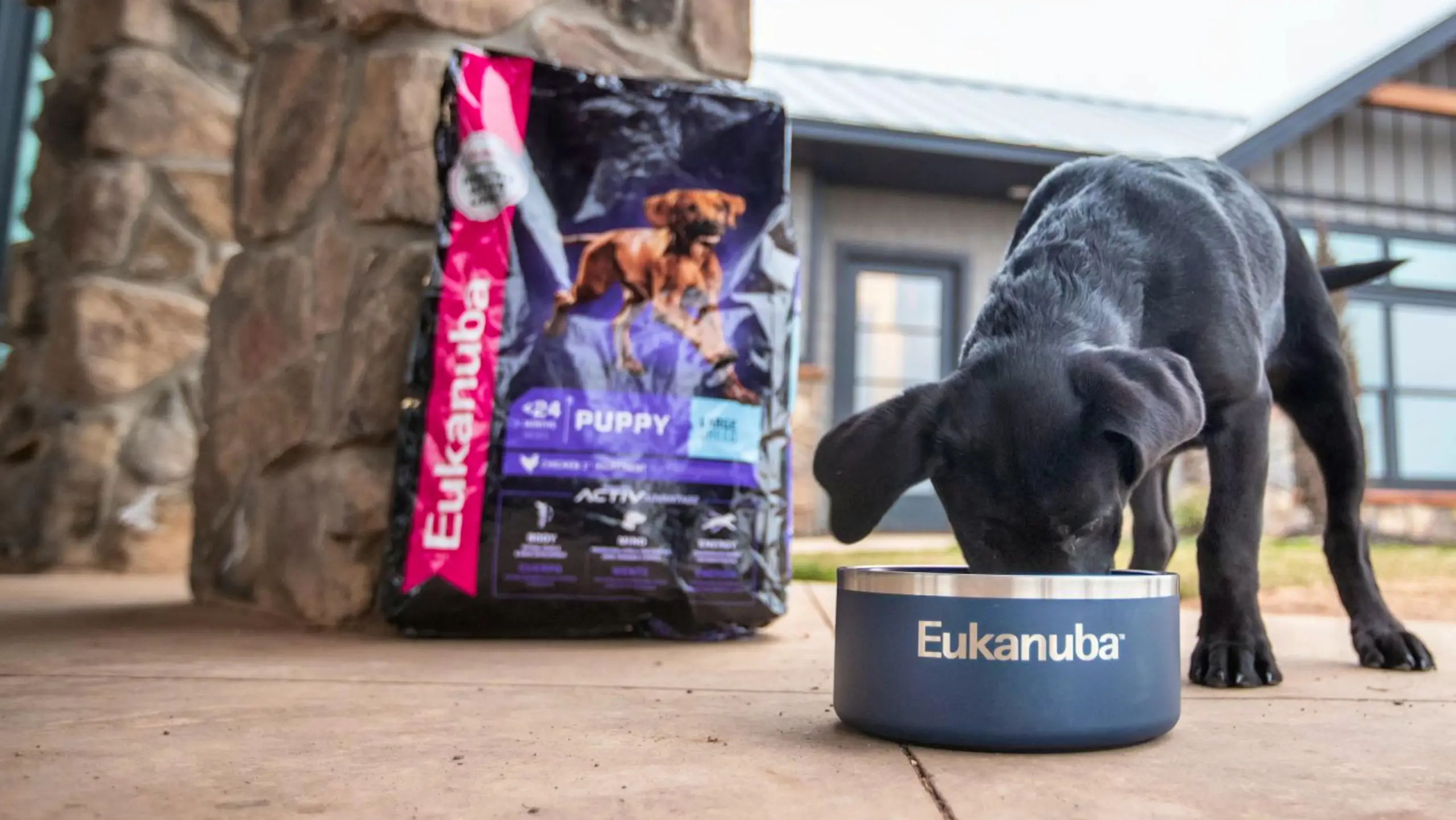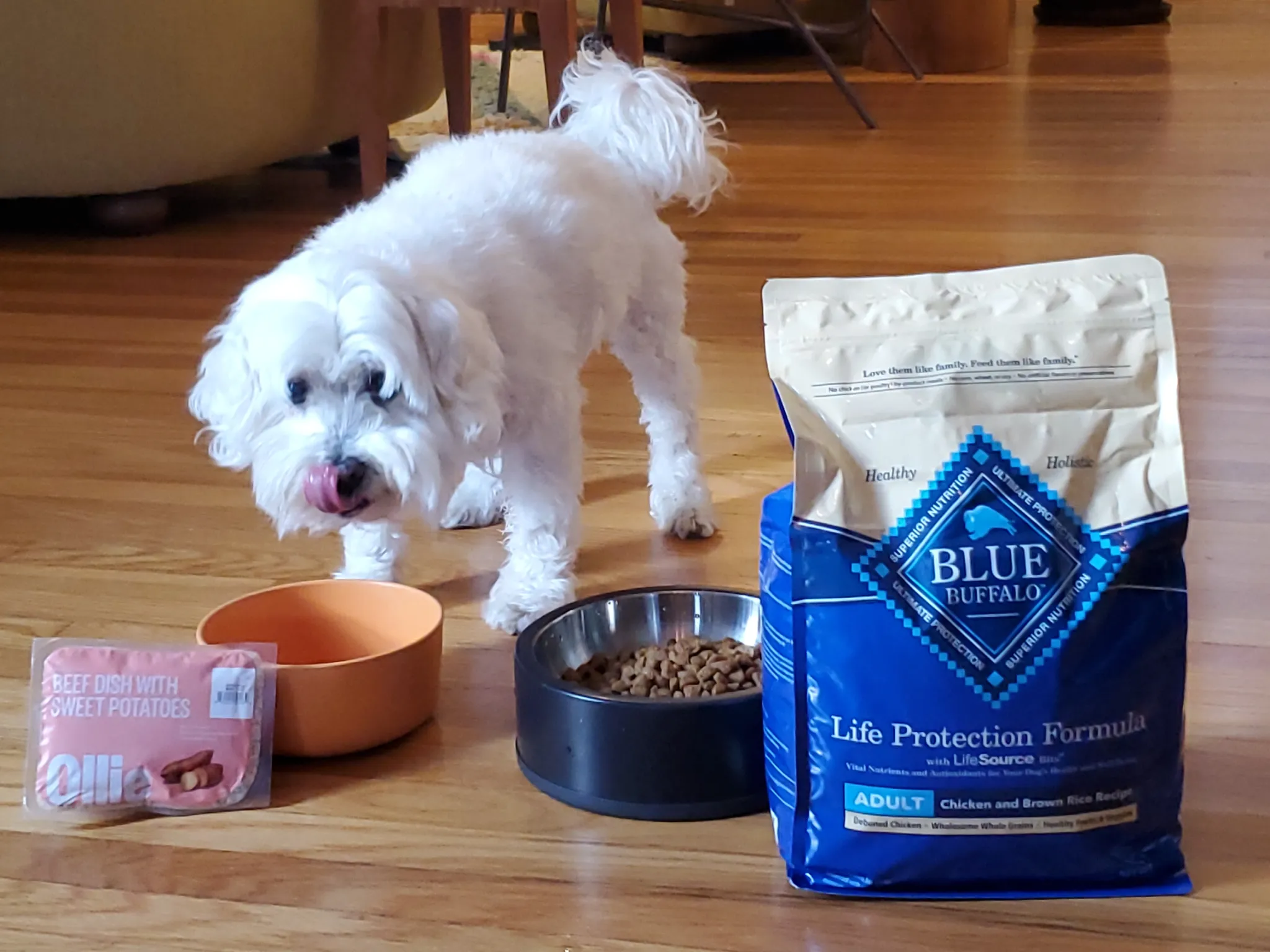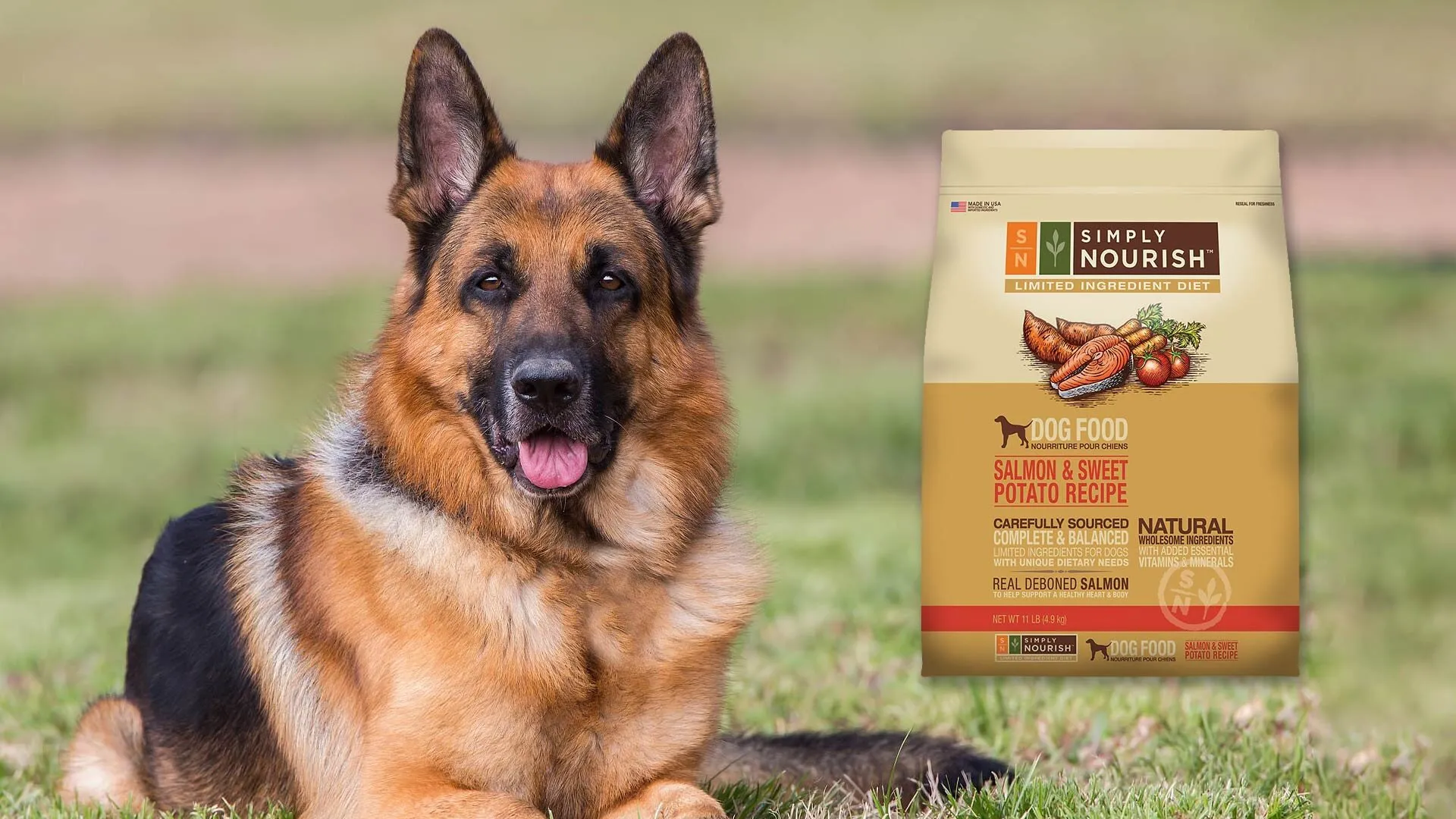The American Bulldog is a strong muscular body breed that is typically known for strength, loyalty, and versatility. Once bred to be working farm and ranch dogs, these rugged and tough dogs have adapted over time to become adored family members.

Questions about an American Bulldog’s ideal weight — how much should an American Bulldog weigh, and what does it depend on?
In this complete guide, we’ll go over American Bulldog weight in detail—everything from average weight ranges and growth stages, to diet and exercise and potential weight-related health issues.
Individual Use of Animals as the Animal Itself: American Bulldog Weight
Before diving into the weight specifics, some background on the overall characteristics of the breed is necessary.
The American Bulldog is a descendant of the Old English Bulldog, originally bred in the United States for strength, agility, and endurance.
They were primarily used for guarding livestock or hunting wild boar, as well as general farm dogs.
Key Characteristics of American Bulldog
Height: 20–28 inches (50–70 cm)
Lifespan: 10–15 years
Build: Muscular, athletic, solid-boned
Temperament: Loyal, confident, protective, affectionate
There are two main types of American Bulldogs:
Scott type (Standard): Slimmer and more svelte
Johnson type (Bully): Sturdier frame, more bulldog-like appearance
Those are all a factor for determining your best weight range.
American Bulldog Average Weight
The weight of an American Bulldog varies greatly depending on its sex, genetics, and body type. Here is a general breakdown:
Males:
Average Weight: 75–120 pounds (34–54 kg)
Height: 22–28 inches
Females:
Average Weight: 60–100 lbs (27–45 kg)
Height: 20–26 inches
It’s important to remember that weight should always be considered alongside the dog’s overall body condition, rather than as a solitary number.
Keep track of how your American Bulldog is growing because monitoring his growth is important to be sure he is growing properly. Here’s a general growth chart for reference:
Note: These numbers are estimates, and each dog’s growth chart is individual.
Since they are your loyal companion, you want to make sure that they are healthy and happy.
Americn Bulldog Genetics
Your Bulldog’s genes are one of the main factors that influence his size. Larger parents produce larger puppies.
The breed (Johnson vs. Scott) also dictates if the dog will be leaner or more bulldog.
Diet and Nutrition
What your dog eats makes all the difference to their weight.
A balanced, high-quality diet, high in proteins, fats, vitamins, and minerals, is essential for growth and weight maintenance.
American Bulldog’s Exercise Level
American Bulldogs are active dogs who require frequent exercise to keep in shape.
Inactivity will cause obesity, while too much chewing or activity could compromise a young pup’s growth.
Health Issues of the American Bulldog
Weight can be impacted by conditions such as hypothyroidism, diabetes and hip dysplasia.
Vaccinations against certain diseases are another reason to take your pet to the vet regularly.
Neutering/Spaying
Neutered or spayed dogs can have metabolic changes that cause them to gain weight if not controlled.
Instead of just using weight, veterinarians also use a Body Condition Score (BCS) to gauge how a dog is doing physically. The BCS scale measures from 1 (emaciated) to 9 (obese) with 4-5 being ideal.
How to Tell if Your American Bulldog is a Healthy Weight
1. Ribs visible but not protruding.
2. Visible waist when looking from above
3. When viewed sideways, belly tucks up
American Bulldog’s Proper Diet
1. Get a breed-appropriate dog food with real meat as the first ingredient.
2. Puppies need to be fed 3–4 small meals each day; adults may be fed twice a day.
3. Limit treats and table scraps.
Regular Exercise for American Bulldog
An American bulldog requires a daily exercise period of at least 30–60 minutes. This can include:
1. Brisk walks
2. Playtime in the yard
3. Tug-of-war or fetch
4. Agility training
5. Portion Control
Common Problems with Classically Labeled Databases Overfeeding
Measure using measuring cups, and follow feeding recommendations according to your dog’s weight and activity level.
Routine Vet Visits
Regular checkups can help find underlying health issues that may contribute to weight gain or loss.
Symptoms of Being Underweight or Overweight
Underweight
2. Ribs, spine and hip bones visible
3. Little or no body fat
4. Lethargy or weakness
5. Poor coat condition
Overweight/Obese
No waist or belly tuck visible
Fat rolls over neck or back
Shortness of breath
Reluctance to exercise
Joint stiffness
10 Health Risks Involved with Poor Weight Management
American Bulldogs can suffer from their own set of health problems related to either being too thin or overweight.
Risks of Obesity
Joint issues (hip/elbow dysplasia)
Diabetes
Heart disease
Breathing issues
Shortened lifespan
Risks of Being Underweight:
Weakened immune system
Poor muscle development
Delayed healing
Reproductive issues
How to Gain Weight and Lose Weight If Your Bulldog Is Underweight
Opt for high-calorie dog food that is nutrient dense
Increase meal frequency
Top them with healthy toppers like cooked eggs, salmon, or pumpkin
Talk to a vet to exclude parasites or metabolic disorders
If Your Bulldog Is Overweight
Transition to weight management food
Decrease snack and treat size
Increase exercise gradually
Monitor weight weekly
Consult with a veterinarian to create an individualized weight loss program
American Bulldog Weight FAQs
Q: At what Age Do American Bulldogs Stop growing?
A: Most American Bulldogs will be at full height by 12–15 months of age, but will fill out and gain muscle mass until approximately 18–24 months of age.
Do American Bulldogs Have An Easy Time Getting Overweight?
A: Yes, especially if they are sedentary or overfed. They have big frames, which can hide weight gain, so regular checks are vital.
Q: What is a healthy weight for an American Bulldog mix?
A: It depends on the mix. This will be less than a purebred, particularly if mixed with a smaller breed. Refer to breed averages and BCS for reference.
Final Thoughts on American Bulldog Weight
Keeping your American Bulldog at a healthy weight is important for their overall health, longevity, and quality of life.
Although weight ranges provide a useful frame of reference, the vast variability among individuals renders tailored attention essential.
Feed your dog a balanced diet, give her regular exercise, and keep in touch with your vet: Do that and you should have your Bulldog in peak condition.
Whether your American Bulldog is a new puppy or a muscular powerhouse, the best thing you can do for their health and happiness is always understand and manage their weight.






